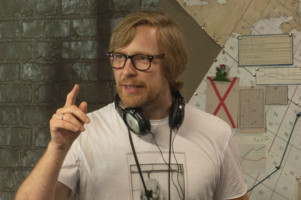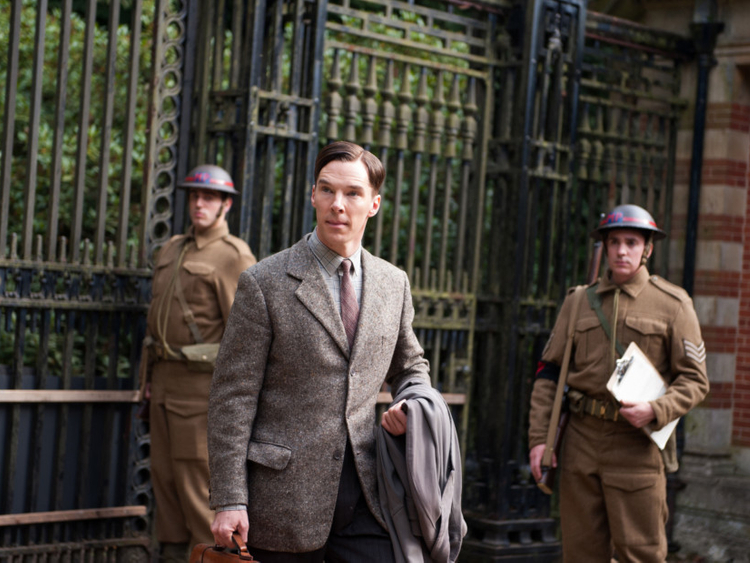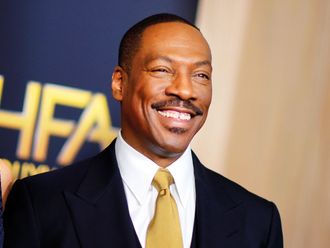
The Imitation Game could appear at first glance to be the product of some algorithm designed for maximum impact as a year-end prestige picture.
For starters, it’s a biopic about British mathematician Alan Turing, who was instrumental in cracking German codes during the Second World War, only to later be prosecuted for his homosexuality. Also, it stars Benedict Cumberbatch, one of pop culture’s hottest properties, alongside Keira Knightley, Matthew Goode and Mark Strong. And finally, it is being distributed by awards season heavyweight the Weinstein Co.
But the variable that throws this hypothesis of extreme calculation out the window is the film’s director, the largely unknown Morten Tyldum. A Norway native, Tyldum’s third feature — 2011’s Headhunters, a corporate thriller starring Game of Thrones star Nikolaj Coster-Waldau — became the highest-grossing Norwegian film of all time. A worthy enough distinction to draw Hollywood’s interest.
The 43-year-old director soon moved his family to the US to cut down on time apart while he was making the rounds in Los Angeles, where he was eventually offered The Imitation Game. To Tyldum though, it wasn’t just a job and it wasn’t just a by-the-numbers film about a hero.
“I was shocked that I knew so little about Alan Turing. Then I started to read about him, and I got a little obsessed,” he said. “To me, it’s a movie about outsiders, about the importance of being different.”
The film interweaves three story strands, one being Turing’s days as a schoolboy in the 1920s, another his years of service for the government during the Second World War and the last being near the end of his life in the 1950s.
Turing’s social awkwardness is surpassed only by his confidence in his own ideas, and Cumberbatch brings a brittle charm to his performance. After Turing is made part of a team attempting to crack the German code machines, he fires many of his co-workers, dismisses the efforts of those who remain and designs something of his own, which can be seen as a forerunner of the computer. He is also briefly engaged to his code-breaking colleague Joan Clarke (Knightley).
“There’s something about him as the outsider’s outsider, carrying all these secrets, the closeted gay man, that really attracted me,” Tyldum said. “I wanted to challenge myself, and for my first English-language movie you couldn’t be more hard-core: dialogue drama, in English, British and [set in a distinct] period. But it became a passion project for me and for so many people involved with the production.”
Humour
The script by screenwriter and novelist Graham Moore, based on the biography by Andrew Hodges, topped the 2011 Black List of unproduced screenplays. Also an executive producer on the film, Moore figures he saw at least 30 other potential directors and it was within moments of first meeting Tyldum that he knew the project had found the director it needed.
“Morten just got what the piece was tonally so much better than I think even I understood it,” said Moore, who has been interested in Turing since first learning of his story while a teenager. “One of the first things we talked about was the humour of the piece. It goes to a very dark place at the end, it’s obviously a very tragic story, and because of that the first half has a lot of humour, a lightness to it.
“A lot of directors would come in and say, ‘This is a serious movie, you can’t have any jokes’ and didn’t get what I was trying to do. Morten just instantly got it.”
Once Tyldum was on board, the team behind the picture was rounded out with cinematographer Oscar Faura (The Impossible), production designer Maria Djurkovic (Tinker, Tailor, Soldier, Spy), in-demand composer Alexandre Desplat, and editor William Goldenberg, an Oscar winner for Argo.
The film, which played at both the Telluride and Toronto film festivals, was shot over eight weeks, after three weeks of rehearsal, for a budget of $15 million (Dh55 million). Whenever possible, Tyldum tried to have the shooting take place in the real locations from Turing’s story, including Sherborne School in Dorset and Bletchley Park, the centre of the British code-breaking operation outside London.
“You have two commitments which run alongside each other,” Tyldum said of how accurate he tried to make it. “You have a commitment to really be truthful to this character, to his life, his legacy, the facts of what actually happened. Then you have a commitment to make the movie, to make it with intensity and to make it fun. So it’s a spy thriller, it’s a tragic love story, it’s a character drama, it’s all of this.”
The film won the audience prize at the Toronto International Film Festival, a frequent indicator of awards success, and has subsequently picked up a number of other festival audience prizes.
“I think it’s great the way it plays as a crowd-pleaser and that it is going so well,” said Tyldum. “It is a movie about a gay mathematician who ends up killing himself, told through three storylines intertwined and not in a linear way. It’s actually hugely complicated, so I take the enthusiasm as a huge compliment.”
With its investigative structure and cryptography storyline, Tyldum wanted The Imitation Game to draw audiences closer to one central puzzle.
“Who is Alan Turing?” said Tyldum. “That was always the question we were trying to figure out, who he was.”
The Imitation Game releases in the UAE on January 8.










